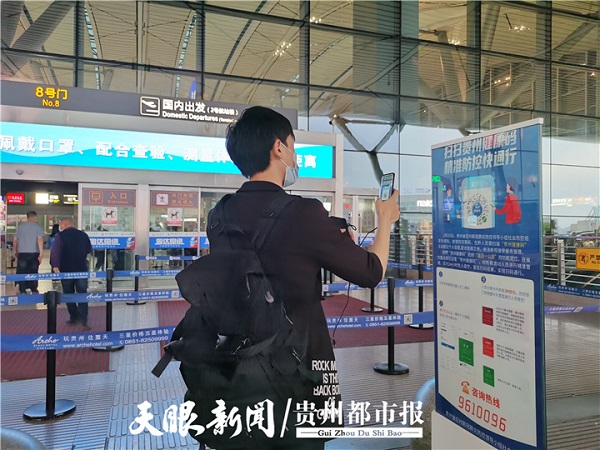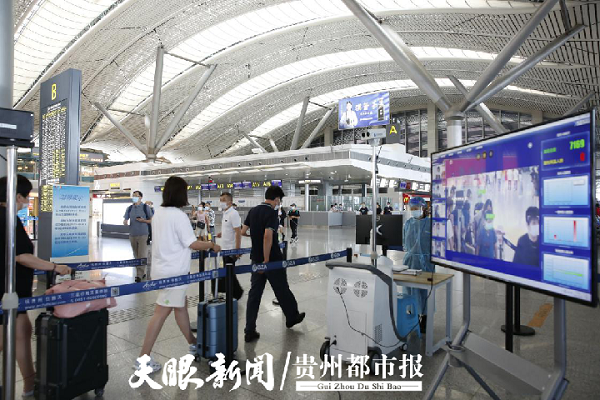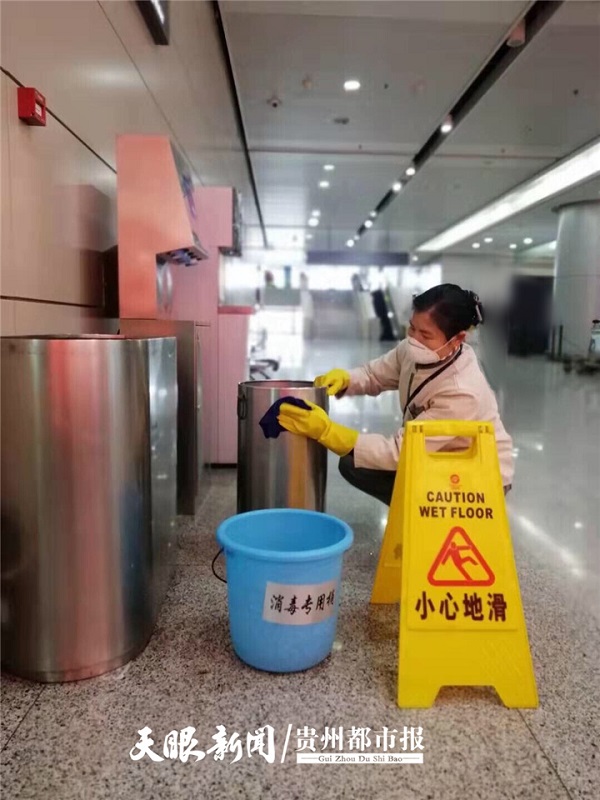Guizhou airport guarantees passenger health security

A passenger scans his QR health code to pass through customs at Guiyang Longdongbao International Airport. [Photo/ddcpc website]
During the novel coronavirus pandemic, Guiyang Longdongbao International Airport in Guiyang – capital of Southwest China's Guizhou province – is employing every possible method in order to prevent and control the spread of the virus.
The airport is providing special gate positions, waiting halls, baggage turntables and shuttle buses for flights from China's medium and high-risk pandemic areas, while cooperating with the Guiyang municipal government to screen potential risks and monitor key areas during prime-time periods.
The airport has organized a special work team of 230 members to check passenger body temperatures and QR health codes and has set up 10 body temperature sensing points at passageways.

Guiyang Longdongbao International Airport now has non-contact infrared thermometers to monitor passenger body temperatures. [Photo/ddcpc website]
A medical team of 28 people has also been prepared to send passengers with abnormal body temperatures to hospitals. For passengers from low-risk areas, the airport has established machines at baggage reclaim areas to check travel information with both ID and face recognition.
Facilities such as escalators, seats, baggage carts and garbage bins are being regularly disinfected. Passengers are currently required to wear masks, check body temperatures and disinfect their hands when at airport terminals.

A member of the cleaning staff disinfects a garbage bin with ethanol. [Photo/ddcpc website]
Guizhou Airports Group Co has also arranged for nucleic acid testing and vaccination for all the employees of its subordinate airports. By July 22, all 3,110 employees receiving nucleic acid tests had negative results and the testing is still ongoing.
Guiyang Longdongbao International Airport has also boosted pandemic prevention measures at cargo areas. All freight from medium and high-risk areas is being disinfected at special areas and employees are required to wear protection suits during working hours.
By July 21, the airport had disinfected 729 flights carrying 800 metric tons of freight from medium and high-risk areas.
Presented by China Daily.
黔ICP备05001922号
All Rights Reserved.
Presented by China Daily.
黔ICP备05001922号



